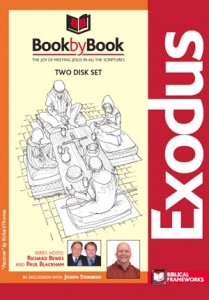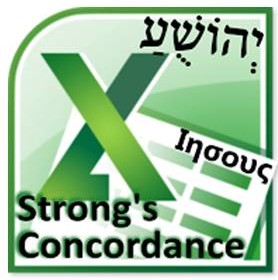 At Ed Stetzer's Blog he's about to host a series of posts on Christ-centred preaching. The contributors are
At Ed Stetzer's Blog he's about to host a series of posts on Christ-centred preaching. The contributors are
- Dr. Daniel Block (Wheaton College)
- Dr. David Murray (Puritan Reformed Theological Seminary)
- Dr. Walt Kaiser (Gordon-Conwell Theological Seminary)
- Dr. Bryan Chapell (Grace Presbyterian in Peoria, IL)
I'm looking forward to David Murray's contribution but first up to bat is Daniel Block who's posted the first half of his contribution here.
Block begins by saying that not enough people wrestle with this issue since they basically neglect the OT. "Because they preach primarily, if not exclusively, from the New Testament their preaching is almost by definition Christ-centered."
I'm not convinced. Why should preaching from the NT be "by definition" Christ-centred? I've certainly heard my fair share of Christless sermon on the fruit of the Spirit, the Jerusalem council, the pastoral epistles, even the sermon on the mount. No-one should have to endure such things, but many of us have. A sermon is not rendered Christ-centred because it's derived from the Greek, rather than Hebrew Scriptures. (Read here for more on Christ in the New Testament).
Block goes on to list some benefits of 'Christ-centred preaching', the first of which is:
- Christ-centered preaching has a long history, beginning with the apostles, the church fathers, the reformers (especially Luther), and extending to more a recent revival Christ-centered preaching in some circles
This is a heck of a concession for Block to make! How will he out-argue this hermeneutical tradition that traces back to reformers, fathers and apostles!?
He doesn't say. Not in this post. Instead Block moves to his own misgivings about Christ-centred hermeneutics:
Christo-centric preaching often morphs into a Christo-centric hermeneutic, which demands that we find Christ in every text.
Notice how Christ is being spoken of here? An item of knowledge located in some texts (and not in others).
Instead Block wants us to have a grander vision of the sweep of God's revelation. He writes: "The Scriptures consist of many different genres and address many different concerns. Not all speak of Christ." Again - how is Christ being considered here? One concern among many. I'm sure Block would say that He's the ultimate concern (he wants a christotelic hermeneutic - one that ends up with Christ). But I can't help feeling that the vision we need to expand here is our vision of Christ Himself.
Block's second misgiving about Christ-centred hermeneutics is this:
Christ-centered preaching may obscure the intent of the original author and in so doing may actually reflect a low view of Scripture.
Well there might be folks with a low view of Scripture snipping out of their OT's everything that they can't squeeze into some narrow Christocentric hermeneutic. I'm sure things like that happen. But let's be honest, preachers pull that kind of fast one with both testaments don't they? And isn't it also possible that those who take Block's protests to heart end up reflecting a low view of Christ. After all He is called the Image of the invisible God, the Word of the Father, the Radiance of God's glory, the Exact Representation of His Being, the Way, the Truth, the Life, the One Moses wrote about. If we don't reflect that Christ-centredness in our handling of God's revelation then can we be said to be properly handling God's revelation?
But of course, there's a way of doing both. There's a way of having the highest regard for Scripture and for Christ. It means reading the Scriptures as already and intentionally Christian. If you do so you can honour both Christ and Scripture and you are never asked to trade one off against the other. But, of course, to do so is to concede that the OT Scriptures just are Christ-centred in all their historical particularity.
Block says that Luke 24 is misunderstood to mean that all the Scriptures do concern Jesus. It's just that, on the road to Emmaus, Jesus ran through the particular verses that did actually refer to Him. Presumably then the vast majority of the Old Testament does not "concern Him" in the Luke 24 sense. I suppose that kind of reading is possible but it doesn't deal with any of those solus Christus verses above.
Block then says "Few proverbs in the book of Proverbs speak of Jesus." Well the proverbs themselves only come after 9 chapters of deep theology in which the royal son is introduced to Wisdom. And, emphatically, Wisdom is not introduced as the accumulation of pithy aphorisms but the personal co-Creator of the universe in Whom is life and grace. The royal son is invited to feast with Wisdom and then out come the pithy sayings.
This example from Proverbs might help to clarify what I mean by Christocentric hermeneutics. I'm not talking about allegorizing from an isolated verse and making an improbable leap to the cross. I'm taking the proverbs very much in context, seeing their source in Christ and also expecting to see a certain cruciformity to them as I read them individually (e.g. Why does a gentle answer turn away wrath? I will wonder aloud, Prov 15:1). All of them flow from Christ and are shaped by Him - the Righteous Royal Son in whom all the treasures of Wisdom reside (Colossians 2:3)
Finally (for this initial post), Block contests:
Rather than clarifying many First Testament texts, Christ-centered preaching may rob them of both their literary quality and their spiritual force.
I grant that this is indeed a danger. But it's a danger inherent in all preaching, no matter what the preacher's hermeneutical grid. We've all got a grid and therefore we're all in danger of missing what's there in order to preach our system.
But is there a grid that is given by the Scriptures themselves? Surely the answer is Yes, and the fact Block lists 'the apostles' as teachers of the christocentric hermeneutic gives the game away.
If we follow them then our conviction will be that the OT Scriptures in all their concrete details and historical particularity are already Messianic through and through. Isn't that the grid that's going to make you delve deepest into the OT and herald Christ from every passage?
Let me finish by pointing again to Nathan Pitchford's brilliant short article on the Reformer's Hermeneutic. He shows how, for the reformers, the literal meaning was the Christ-centred meaning. Today, however, the "literal" meaning has come to mean "the naturalistic" meaning which is kept separate from any centre in Christ. He finishes by showing 6 ways the naturalistic reading fails:
1. A naturalistic hermeneutic effectively denies God’s ultimate authorship of the bible, by giving practical precedence to human authorial intent.
2. A naturalistic hermeneutic undercuts the typological significance which often inheres in the one story that God is telling in the bible (see Galatians 4:21-31, for example).
3. A naturalistic hermeneutic does not allow for Paul’s assertion that a natural man cannot know the spiritual things which the Holy Spirit teaches in the bible – that is, the things about Jesus Christ and him crucified (I Corinthians 2).
4. A naturalistic hermeneutic is at odds with the clear example of the New Testament authors and apostles as they interpret the Old Testament (cf. Peter’s sermon in Acts 2, Paul’s interpretations in Romans 4 and Galatians 4, James’ citing of Amos 9 during the Jerusalem council of Acts 15, the various Old Testament usages in Hebrews, etc.).
5. A naturalistic hermeneutic disallows a full-orbed operation of the analogy of faith principle of the Reformation, by its insistence that every text demands a reading “on its own terms”.
6. A naturalistic hermeneutic does not allow for everything to have its ultimate reference point in Christ, and is in direct opposition to Ephesians 1:10, Colossians 1:16-18, and Christ’s own teachings in John 5:39, Luke 24:25-27.
Read the whole thing
 Paul Blackham's Book by Book is Matthew Henry for the 21st century. It is genuinely that good.
Paul Blackham's Book by Book is Matthew Henry for the 21st century. It is genuinely that good.











